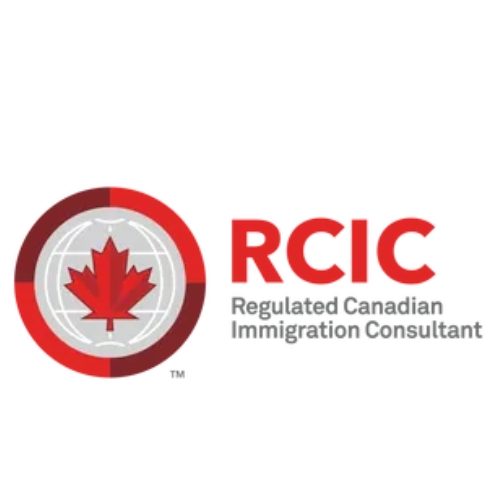A Guide to the Rural Community Immigration Class (RCIC)

Canada has long been celebrated for its inclusive immigration policies, designed to attract talent, fill labor shortages, and contribute to the growth of its economy. One of the innovative pathways recently introduced to address specific regional needs is the Rural Community Immigration Class (RCIC). This program offers foreign nationals a unique opportunity to establish themselves in smaller Canadian communities while contributing to their economic and social vitality. In this blog, we provide a comprehensive breakdown of the document published in the Canada Gazette, Part I, Volume 158, Number 50: Government Notices, December 14, 2024. This analysis will explore the objectives of the RCIC, its benefits, and how it paves the way for a successful transition to life in Canada.
Understanding the Rural Community Immigration Class
The RCIC is a targeted immigration initiative designed to address the unique challenges faced by rural and smaller communities across Canada. Unlike larger urban centers, these communities often struggle to attract and retain skilled workers, leading to labor shortages and slower economic growth. The RCIC aims to:
- Facilitate immigration to rural communities experiencing workforce gaps.
- Promote population growth in smaller towns and regions.
- Support the economic development of less populated areas by aligning immigrant skills with local job opportunities.
- Foster community engagement and integration by encouraging immigrants to settle long-term.
How the RCIC Differs from Other Immigration Programs
Unlike programs like Express Entry or the Provincial Nominee Program (PNP), the RCIC is region-specific and community-driven. Local communities play a critical role in selecting and supporting candidates to ensure their integration and long-term success. The program provides a more localized approach, making it easier for immigrants to find jobs, housing, and social connections.
Eligibility Criteria for RCIC
To qualify for the RCIC, applicants must meet specific requirements, which typically include:
- Secure a Job Offer: Obtain an eligible and genuine, full-time job offer from a designated employer within a participating community.
- Community Recommendation: Receive a recommendation from the community, showing local support for your settlement and contributions.
- Relevant Work Experience or Education: Demonstrate skills or qualifications related to the job offered, in line with Canada’s TEER (Training, Education, Experience, and Responsibilities) categories.
- Language Proficiency: Meet language benchmarks, such as CLB 4, 5, or 6 depending on the TEER of the job offered.
- Proof of Settlement Funds: Show sufficient funds to support yourself and your family unless you’re already working in Canada (half of Low Income Cut Off)
- Intention to Reside: Prove your commitment to living in and contributing to the designated community.
Benefits of the RCIC for Immigrants
The RCIC is a win-win program that offers several advantages to immigrants, including:
- Lower Competition: Unlike larger cities, rural areas often have fewer applicants for skilled jobs, increasing the chances of being selected.
- Personalized Support: Community-driven programs ensure that immigrants receive tailored support for settlement, including help with housing, childcare, and local connections.
- Pathway to Permanent Residency: Successful candidates can transition to permanent residency, offering long-term stability and access to benefits like healthcare and education.
- Affordable Living Costs: Smaller communities often have lower living costs compared to urban centers, making it easier for newcomers to establish themselves financially.
- Stronger Community Ties: Rural areas often have tight-knit communities, providing immigrants with a welcoming and supportive environment.
Benefits of the RCIC for Rural Communities
From the community’s perspective, the RCIC helps address critical challenges, including:
- Filling Labor Gaps: Many rural communities face acute labor shortages in industries like agriculture, healthcare, manufacturing, and construction. Immigrants bring much-needed skills to these sectors.
- Economic Revitalization: The arrival of skilled workers boosts local businesses, stimulates economic growth, and contributes to population stability.
- Cultural Enrichment: Immigration fosters cultural diversity, enriching the social fabric of smaller towns and promoting cross-cultural understanding.
- Sustainable Development: A growing population ensures the sustainability of public services, schools, and other community resources.
Steps to Apply for the RCIC
- Identify Eligible Communities. Not all rural communities in Canada participate in the RCIC program. Research the list of eligible communities and identify those that align with your skills and career aspirations, such as Sault Ste. Marie.
- Secure a Job Offer: Reach out to employers in your selected community to apply for positions that match your qualifications. Be sure the employer is designated under the RCIC program, ensuring the job offer is valid for your immigration process.
- Obtain a Community Recommendation: Establish connections within the community to better understand their needs and demonstrate your commitment. Building a strong relationship is crucial in securing the community's recommendation.
- Prepare and Submit Your Application with iCA's Assistance: Once you have both the job offer and community recommendation, iCA Immigration & Talent Services can help you prepare and submit your application, ensuring your application is complete and accurate.
- After receiving a positive response, proceed with applying for permanent residency through the appropriate immigration pathway, guided by iCA Immigration & Talent Services’s expertise and support.
With iCA Immigration & Talent Services’s guidance, you can confidently navigate each step of the RCIC application process.
Conclusion
The Rural Community Immigration Class (RCIC) is a groundbreaking initiative that bridges the gap between the aspirations of immigrants and the needs of rural Canadian communities. By fostering mutual growth, this program not only unlocks opportunities for foreign nationals but also strengthens the social and economic fabric of smaller towns across Canada.
Whether you are an aspiring immigrant looking to build a future in Canada or a rural community seeking skilled talent, the RCIC is a powerful tool for creating lasting partnerships. With determination, preparation, and community support, the RCIC can pave the way for a thriving life in one of Canada’s picturesque and welcoming rural areas.








